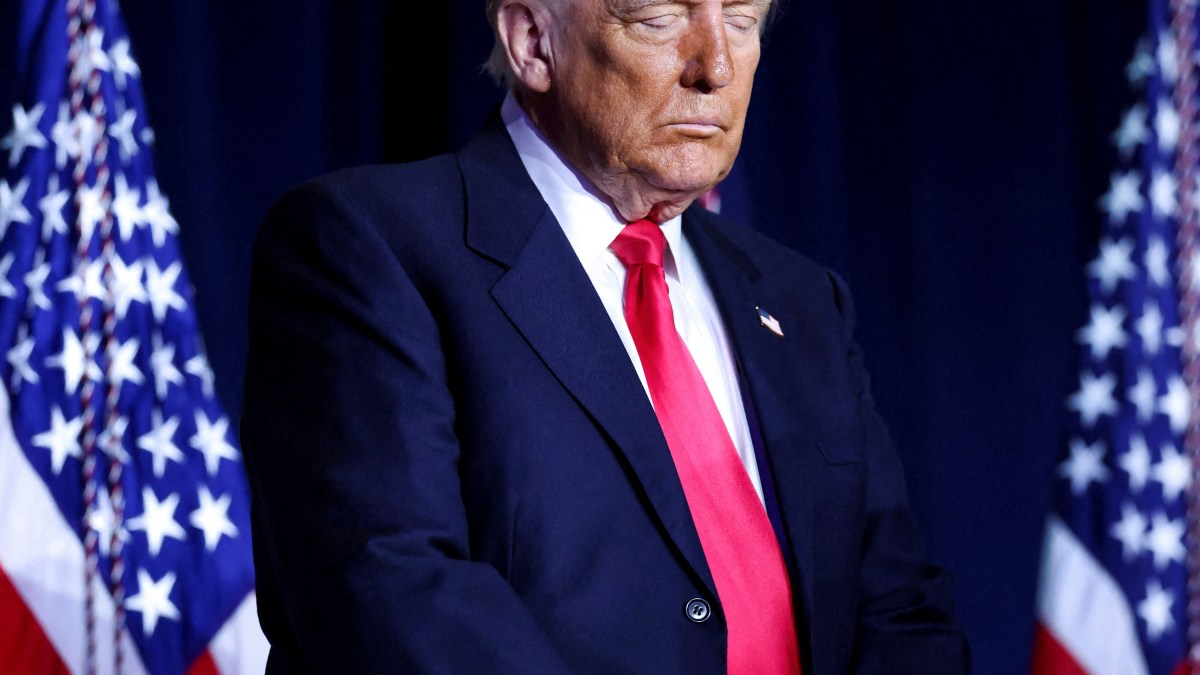A task force has been established under the leadership of United States President Donald Trump to combat what he called “anti-Christian bias” within the government.
Trump made the announcement on Thursday at the annual gathering of government leaders and religious organizations in Washington, DC.
Trump  stated in his speech that he would designate US Attorney General Pam Bondi to lead the effort and that he would sign an executive order later in the day.
The Department of Justice (DOJ) and the Internal Revenue Service (IRS), two other government entities that may be subject to scrutiny as a result of the effort, he also referred to.
“The mission of this task force will be to immediately hold all forms of anti-Christian targeting and discrimination within the federal government, including at the DOJ, which was absolutely terrible, the IRS, the FBI and other agencies”, Trump said.
Bondi added that he would work to “peace the rights of Christians and religious believers all over the world and to fully prosecute anti-Christian violence and vandalism in our society.”
Trump’s proposed executive action may raise questions about the separation of church and state, even though it did not provide examples of what constitutes “anti-Christian bias.”
Under the First Amendment of the US Constitution, the government protects freedom of religion.
Legal experts have frequently cited the “establishment clause” of that amendment as outlawing the government from imposing or promoting religious beliefs. It states that no law shall be passed by Congress “shall make no law respecting an establishment of religion.”
However, some evangelical supporters claim that the US government system is inseparably shaped by Christianity. Throughout his presidential campaigns, Trump has cultivated that interest.
On Thursday, Trump urged Americans to “bring God back” into their lives. He also announced the establishment of a commission on religious liberty, along with the new task force.
“If we don’t have religious liberty, then we don’t have a free country”, Trump said.
After two unsuccessful assassination attempts last year, he said it “changed” him and that religion had also helped him.
“I feel even stronger”, Trump, a nondenominational Christian, said. “I believed in God, but I feel, I feel much more strongly about it. Something happened”.
Trump later said, “It was God that saved me,” at a second prayer breakfast that was organized by a private group.
He also took aim at his predecessor, Democratic President Joe Biden, accusing him of “persecution” for his administration’s prosecution of anti-abortion rights advocates accused of blockading reproductive healthcare clinics.
Trump’s new task force on “anti-Christian bias” has already drawn criticism.
“Rather than protecting religious beliefs, this task force will misuse religious freedom to justify bigotry, discrimination, and the subversion of our civil rights laws”, Rachel Laser, the president of Americans United for Separation of Church and State, said.
Andrew Seidel, a lawyer at the Freedom From Religion Foundation, also questioned the motivation behind the new task force.
In a post on X, he wrote, “This task force is not a response to Christian persecution; it’s an attempt to restore their declining Christian privilege and supremacy.”
In this nation, Christians still make up the majority. In Congress and essentially every other government institution, they are overrepresented. But the demographics are shifting. Rapidly. And that’s precisely why we are seeing this rise of Christian Nationalism”.
Several religious leaders have already come into conflict with President Trump and his administration. The day after his second inauguration, for instance, Trump attended a sermon delivered by Reverend Mariann Budde at the Washington National Cathedral, where she called for “mercy” for members of the LGBTQ+ community and undocumented immigrants.
On his online platform Truth Social, Trump later called Budde a “Radical Left hardline Trump hater.”
Catholic Vice President JD Vance has also had a conversation with the top US pastors in his own church about immigration issues. Concerns have been raised by other clergy in the nation about having churches removed from lists of places that were previously protected from immigration enforcement.
Source: Aljazeera

Leave a Reply